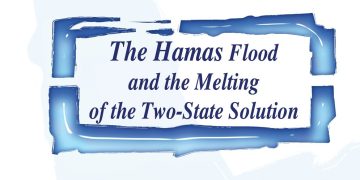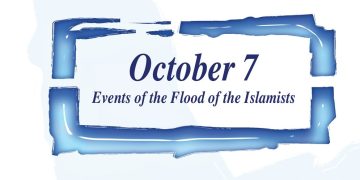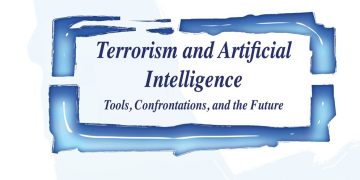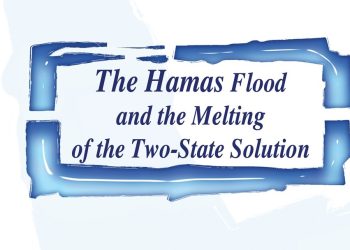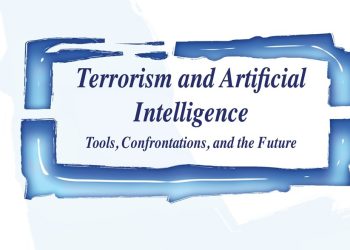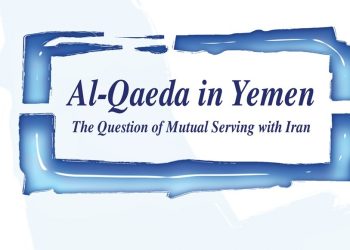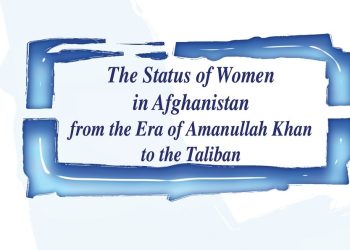People who get caught up in the conceit of the contemporary, or what C.S. Lewis once called “chronological snobbery”, are prone to forget that Jews and Muslim Arabs share a lot of history, not all of it defined by enmity. Even the contemporary relationship is not all conflictual, although that mostly political aspect is what the news media and the related commentariat usually dwell on. The sum of the multitude of relationships among Jewish and Muslim Arab individuals and communities over nearly fifteen centuries defies blithe generalizations.
More important for practical purposes, the relationship is also malleable, subject to the agency of contemporaries. A useful trick question to ask students, one that many Jewish and Muslim religion teachers know, is this: “What’s the most important day in Jewish (or Muslim) history?” And the answer, after the students one by one offer their inevitably failed proposals to satisfy the question, is: “Today is the most important day in Muslim (or Jewish) history, because it’s the only day we can do something about.”
One basis for pursuing mutual respect and toleration, even amid conflicting interests, is what Jews and Muslims share in religion, and in scholarship about religion and religious history. Interfaith dialogue is no panacea, but it can limit the damage that the passions of political disagreement can cause. It provides a way for people to stay engaged even when they disagree; it limits polarization, self-absorption, and dogmatism, all potential fuses to violence and to the further deterioration of hope for cooperation and peace.
In that spirit, let me offer an interpretation of two verses, far apart from each other in the text of the Book of Psalms–what Muslims call the Book of Zabur. In the Hebrew Bible, the Book of Psalms is part of the third section, “holy writings.” In Islamic tradition, The Book of Zabur is one of the five revealed holy books. The first, said to be a lost book, is called Scrolls/Suhuf, by tradition revealed to Abraham and then to Moses. The second is the Torah/Tawrat, revealed to Moses. The third is Psalms/Zabur, revealed to David. The fourth is the Injil, the Gospels, revealed to Jesus, and the fifth of course is the Quran, revealed to Mohammed. So Psalms/Zabur is within the Muslim canon at the margin, and the fact that it is mentioned by name thrice in the Quran itself (4:163, 17: 55, and 21:105) establishes and ensures its status.[1]
The verses under study are Psalm 8, verse 5 (verse 4 in the Christian Bible and hence in the Arabic translation), and Psalm 144, verse 3.[2] Each is followed by a verse that importantly sets the context for their meaning. I will first translate the two pairs of verses into English as best I can, and then offer an interpretation of the verses seen together. Several English translations exist, suggesting that getting the exact meaning across is not simple. I will then leave it to fluent Arabic readers to gauge how close the Arabic translations may be to my English renderings of the Hebrew. The translations are close enough to allow the following interpretation to make sense.
Psalm 8, verses 5 and 6 (4 and 5 in the Arabic translation) say as follows: “What is a person than you remember him, and a son of man that you account for him? You have diminished him but little from the Divine, and crowned him with glory and honour.”
Psalm 144, verses 3 and 4 say as follows: “O Eternal, what is man that you know him, and the son of a person that you think of him? Man is like a breath; his days like a shadow that passes away.”
To understand what the verses could mean when read together, we must first point out some basics.
Verses 8:5(4) and 144:3 have a nearly identical poetic structure, and no other verses in Psalms have that same structure. Both are also expressed in the second-person singular: the speaker is addressing God. There are, however, three differences between the core verses.
First, 144:3 begins with the holy name of God, YHWH, called the Tetragrammaton (four-letter name) in Greek. This word is a literal conjugation of the verb “to be” in the past, present, and future tense, and so literally means “eternal.” (Most English translations do not render it this way, however.) Verse 8:5(4) has no introductory invocation of God.
Second, verse 8:5(4) uses the word “person” (ehnosh) first and “son of man” (ben-adam) second; verse 144:3 uses “man” (adam) first and “son of a person” (ben-ehnosh) second. (Most English translations translate these two different words as the same word, “man”, apparently because all possible translations of ehnosh feel stylistically awkward; translation two different words as the same word obviously leaves something to be desired.)
Third, the key verb vocabulary is different. Verse 8:5(4) uses verbs with the roots z-k-r, remember, and p-q-d, which is often translated “recall” but which I have translated above “account for”. Why I have done that?
The Hebrew root p-q-d is difficult to translate into English. It is the same root we find in Genesis 21:1, which has been translated in many ways. Sometimes it is translated, “And the Eternal remembered Sarah.” But that distinguishes it not at all from z-k-r. Often in Christian sources it is translated as, “And the Eternal visited Sarah”.
We can sometimes get at the inner meaning of a root if we also search out other uses of it in the text. In this case, p-q-d is used in the Ten Commandments, in Exodus 20:4-5. The text says, “Do not bow down to them [graven images] or serve them; for I the Eternal your God am a jealous God, visiting the iniquity of the fathers upon the children to the third and fourth generation of them that hate Me, and showing lovingkindness to the thousandth generation of those who love me and keep my commandments.” Here p-q-d is again usually translated as visiting, but there are better ways to capture the meaning.
In both of these cases mentioned in the Torah, God is associating two specific moments in time. In announcing the birth of Isaac in Genesis, God is connecting his original promise that Sarah would bear a child to Abraham, as had Hagar earlier, to the moment when that promise is about to be redeemed. In the case of the Ten Commandments in Exodus, God is associating a promise in the here and now to a future connection, that he will redeem a vow to link the iniquity of fathers to their progeny–a proposition that may be understood in ordinary sociological terms as well as in other ways. In both cases we are being told of an accounting process of sorts in which one event corresponds to another. That is a more specific meaning than the general verb “to remember”, which, while it connects something in the past to the present, does so with no particular purpose made evident. Translating p-q-d as “to visit” misses this conceptual point altogether.
The “accounting” rendering also aligns well with another use of p-q-d, in Numbers 4:23, which tells of a census being taken; the verb is used in the sense of “counting” or “accounting for” heads. It relates of a purpose: Moses is told to sum individuals together to arrive at a collective concept, in this case raw material to compose a defence force as the people move through the wilderness. The same basic meaning applies to Exodus 38:21, where the noun-possessive form of p-q-d is often translated as “accountings” or “records”: “These are the accountings of the Tabernacle. . .”
If we apply that understanding of p-q-d to the verse under examination in Psalms 8:5(4), we can translate it, a bit loosely to make the point, as “and the son of man that you, God, would bother keeping a record of his deeds.” The obvious allusion if we translate that way is to the Ten Days of Repentance between New Year and the Day of Atonement, where the verb p-q-d occurs in the liturgy and, not coincidently perhaps, where the section of Genesis about the birth of Isaac, of God “taking note of” Sarah, begins the public Torah reading of the ten-day period.
The key verbs used in verse 144:3 are completely different. The first is y-d-ayin, to know. The second is het-sh-v, to think of or, as used here, to be mindful or thought of. (Here the Arabic translation uses different roots but aligns with the same meanings.)
As for the following verses in the two cases, they create dramatically different contexts. Verse 8:6(5) speaks very highly of humankind, claiming that we are only slightly less exalted than God, and if one reads further, that we have dominion over the earth just as God has dominion over all of creation. Verse 144:4 could hardly present a greater contrast: Humans are as nothing, a mere breath and a short-lived one at that.
How can we account for the fact that these two verses, with obvious parallel structures, are set in such dramatically different tonal contexts? What does the difference in the verb pairings mean, and can that help us to answer the question about the starkly different contexts? “What does the inversion of the nouns “person” (ehnosh) and “man” (adam) mean? Why does one verse start by mentioning the Eternal but the other not?
How to solve this puzzle? Jewish sages and scholars have been pouring over the text of the Hebrew Bible for thousands of years; commentary on all of its individual books is voluminous. So the first thing one would normally do is search for commentaries on that discuss Psalms 8:5-6(4-5) and 144:3-4 together. I searched and friends more expert than me searched for me. To my surprise, we found little. So we’re on our own.
The key to solving the puzzle may begin with an observation about the nature of the language itself. Hebrew as well as Arabic, especially as applied to poetry, can be ambiguous. Specifically, are these verses speaking about mankind generically or about one man? In other words, is the subject here people or a person? So, is verse 8:5(4) asking “what is an individual person?” and what is “a single son of man” or is it asking, in effect, “what is humanity”? Same with verse 144:3; it can mean “What is man?” meaning humanity or “What is a man?”, meaning a single individual. The difference is obviously significant.
Were it not for the context, the question could not be answered, for the language is perfectly ambiguous. Biblical Hebrew does not have an abstract conceptual term for “humanity” separate from the term for “man.” With the context, however, the question almost answers itself.
Verse 8:5(4) refers to humanity. When people are looked upon together, as a community, they are but little lower than the divine. They can create and build, they can exert power and do great things that last far beyond the lifespans of individuals. Verse 144:3 refers to an individual person who, by him or herself, can do little. That is why it begins with a reference to the Eternal: It asks God’s mercy to be brought to bear upon an individual, for every individual needs His mercy.
And consider the verb choices. In verse 8:5(4) God remembers and accounts for humanity; He works through history, as with the birth of Isaac; he takes an inventory of holy vessels; he asks for a census in the wilderness. The language connotes something collective, applicable to the community as a whole. But in verse 144:3 God knows and is mindful of individuals. These two verbs connote intimacy.
The root y-d-ayin is sometimes used in biblical Hebrew to speak delicately of sex, as in a man “knew” he wife. It is hard to get more intimate than that. To be “mindful of” or to “think of” connotes intimacy, too. The root het-sh-v is the basis for the modern Hebrew word for a computer–mahshev, a thing that thinks–but it is also the root for the more basic word “important” (hashoov). Something important is something separated out from the run-of-the-mill, something especially significant and hence individuated.
So the poetic language of the two verses is parallel, but the meanings are different yet complementary. That is why, perhaps, the nouns “person” (ehnosh) and “man” (adam) are flipped from Psalm 8 to Psalm 144, to show that God is both the God of big-sweep history and a personal God as well. The meanings are not opposites, but necessary parts of a whole.
So it is for Jews and for Muslims, separately and together. Jews are a diverse group, argumentative and stubborn–“stiff-necked” the Torah says. When Jews fail to acknowledge their brother- and sisterhood and to accept that their futures are joined, bad things happen. Temples are even destroyed on account of gratuitous hatred, according to the sages. When they act with love and kindness toward one another wonderful things happen.
Same for Muslims. When Muslims undermine and contend with each other, as in the sectarian hatreds tearing the Middle East apart today, terrible things happen: wars, terrorism, destruction, mass desecrations of human rights and human dignity. When they respect and cherish each other, even celebrate their differences, wonderful things happen.
The same goes, I believe, at the higher level of the Abrahamic “peoples of the book” together. When we hate, disparage and try to harm each other, terrible things happen. No one really wins anything for long, for every seeming victory only seeds new problems and generates new threats. Were we to cooperate instead of pester and provoke each other, there is no limit to what we could achieve together. The Abrahamic peoples, in the Middle East and in the wider world beyond, have far more in common in the things that really matter than they have disagreements keeping them apart. We are different but we are complementary, just like the two parallel verses in the Book of Psalms/Zabur.
That’s how the world works. When we open our eyes and really look, we see that what may seem at first like opposites–men and women, for example–are really half-essences that need the other for completion, creativity, and life itself. There is no contradiction between individualism and association with family and larger community; each role completes the others. The sooner we all understand this, and apply it to both our personal lives and the larger circumstances in which they are set, the better off we will all be.
[1]1 There have been several translations of Psalms/Zabur into Arabic, the earliest before the advent of Islam. Psalms is part of the Christian Bible, too, and so was translated along with the rest centuries before the birth of Mohammed. These early translations were not from Hebrew but from Syriac, Coptic, Greek, or Latin. More recent translations have been made from Latin and French (for example, the 1961 effort by Mohammad al-Sadeq Hussein and Serge de Beaurecueil). As far as I know, no Arabic translation has been done directly from Hebrew, which is regrettable since the two languages come from the same language family and so would likely produce a translation of greater fidelity than any coming from a romance language or from Greek.
[2] The numbering of the verses is slightly different in Christian Bible translations.



